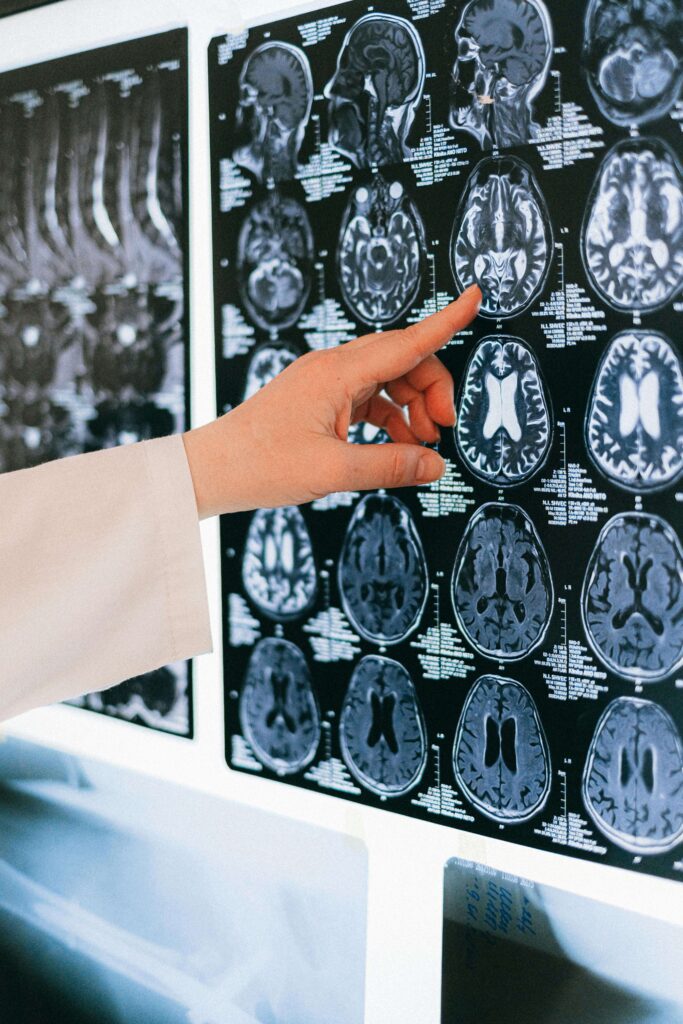Brain injuries can profoundly impact cognitive function, affecting memory, concentration, attention, and overall mental clarity. Whether caused by trauma, stroke, or illness, brain injuries require a comprehensive approach to recovery and rehabilitation. Understanding how to maintain and even improve cognitive health following a brain injury is crucial for regaining independence and enhancing the quality of life.
Understanding Brain Injury and Its Effects on Cognition
A brain injury occurs when the brain is damaged due to a traumatic event, such as a blow to the head, a fall, or an accident, or due to medical conditions like a stroke or infection. The extent of cognitive impairment depends on the severity and location of the injury. Common cognitive challenges following a brain injury include:
- Memory Problems: Difficulty recalling recent events, retaining new information, or remembering facts and details.
- Attention and Concentration: Struggling to focus on tasks, becoming easily distracted, or being unable to multitask.
- Executive Functioning: Issues with planning, organizing, problem-solving, and decision-making.
- Processing Speed: Slower thought processing and delayed responses to stimuli.
- Emotional and Behavioral Changes: Increased irritability, anxiety, depression, or difficulty regulating emotions.
Steps to Maintain Cognitive Health After a Brain Injury
- Engage in Cognitive Rehabilitation Therapy
Cognitive rehabilitation therapy (CRT) is a specialized program designed to help individuals recover cognitive function following a brain injury. CRT focuses on improving specific cognitive skills, such as memory, attention, and executive function, through exercises, strategies, and compensatory techniques. Working with a trained therapist, patients can develop personalized strategies to manage cognitive challenges and enhance mental function.
- Adopt a Brain-Healthy Diet
Nutrition plays a significant role in cognitive health and recovery. A diet rich in antioxidants, omega-3 fatty acids, vitamins, and minerals can support brain function and promote healing. Key foods to include in a brain-healthy diet are:
- Fatty Fish: Rich in omega-3 fatty acids, which are essential for brain health and can help repair damaged brain cells.
- Berries: Packed with antioxidants that protect brain cells from damage and promote cognitive recovery.
- Leafy Greens: High in vitamins like folate and vitamin K, which support brain function and cognitive health.
- Nuts and Seeds: Provide healthy fats, vitamin E, and other nutrients that are beneficial for brain health.
- Stay Physically Active
Regular physical exercise is beneficial for brain health and recovery after a brain injury. Exercise increases blood flow to the brain, promotes neurogenesis (the formation of new brain cells), and enhances overall cognitive function. Activities like walking, swimming, yoga, and light strength training can improve brain health and cognitive performance. Always consult with a healthcare provider before starting a new exercise regimen, especially after a brain injury.
- Prioritize Quality Sleep
Sleep is vital for cognitive recovery and overall brain health. During sleep, the brain consolidates memories, repairs itself, and clears out toxins. Poor sleep can exacerbate cognitive challenges and hinder recovery. Establishing a consistent sleep routine, creating a relaxing bedtime environment, and avoiding caffeine or electronic devices before bed can improve sleep quality and cognitive health.
- Practice Mindfulness and Relaxation Techniques
Mindfulness and relaxation techniques, such as meditation, deep breathing exercises, and progressive muscle relaxation, can reduce stress and anxiety, which are common after a brain injury. These practices help calm the mind, improve focus and attention, and enhance overall cognitive function. Incorporating mindfulness into daily routines can support cognitive recovery and emotional well-being.
- Stay Mentally Active
Keeping the brain engaged through mental exercises and activities can help maintain and improve cognitive health after a brain injury. Activities like puzzles, reading, writing, playing musical instruments, and learning new skills can stimulate the brain and promote cognitive recovery. Engaging in these activities regularly can help strengthen cognitive abilities and enhance overall mental function.
- Socialize and Stay Connected
Social interactions play a crucial role in cognitive health and recovery. Staying connected with family, friends, and support groups can provide emotional support, reduce feelings of isolation, and stimulate cognitive function. Socializing encourages communication, problem-solving, and emotional regulation, all of which are important for cognitive recovery after a brain injury.
- Use Technology to Support Cognitive Health
Various apps and digital tools are designed to support cognitive recovery and enhance brain function. Memory games, brain-training apps, and cognitive rehabilitation programs can provide structured exercises to improve cognitive skills. Additionally, using digital calendars, reminders, and note-taking apps can help manage cognitive challenges and improve daily functioning.
- Incorporate Supplements for Cognitive Support
Certain supplements have been shown to support brain health and cognitive function after a brain injury. Supplements like NTRY contain ingredients known to enhance cognitive performance and support brain recovery. NTRY includes:
- Citicoline: Supports brain energy metabolism and enhances cognitive function, particularly in individuals recovering from brain injuries.
- Acetyl-L-Carnitine: Improves mental energy and supports brain health, aiding cognitive recovery.
- L-Theanine: Promotes relaxation without sedation, reducing stress and anxiety, and supporting overall cognitive health.
NTRY can be a valuable addition to a comprehensive brain health regimen, providing the nutrients needed to support cognitive recovery and improve mental clarity.
Conclusion
Maintaining cognitive health after a brain injury requires a multifaceted approach that includes cognitive rehabilitation, a brain-healthy diet, physical activity, quality sleep, mindfulness, mental stimulation, socialization, and the right supplements. By adopting these strategies, individuals can support their cognitive recovery, improve brain function, and enhance their quality of life. Remember, recovery is a journey, and with the right support and tools, it is possible to regain cognitive health and live a fulfilling life.



